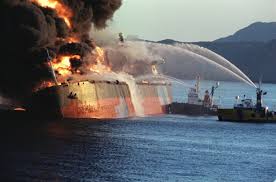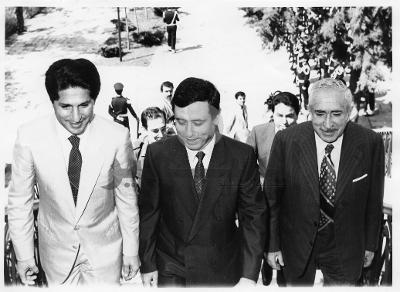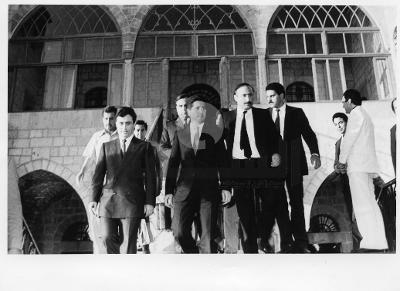Two top Syrian emissaries today flew to Saudi Arabia and reported to King Fahd and his inner circle on their recent mediation mission to Iran designed to ease tensions in the Persian Gulf shipping war.
But hours after Syrian Vice President Abdul Halim Khaddam and Foreign Minister Farouk Charaa flew home there was no indication from either side about the outcome of their visit. The emissaries carried a letter to Fahd from Syrian President Hafez Assad.
While the visit to the Saudi capital of Riyadh was taking place, official Syrian media accused Iraq, ruled by a rival wing of the Baath party, of “sabotaging” the Tehran mission by its air attacks against shipping in Iranian waters while Khaddam and Charaa had been in Tehran Thursday.
Syria, the only Arab country except Libya to side with Iran in the 44-month-old gulf war, had undertaken the Tehran mission at Saudi request.
The importance attached to the Syrian mission was underlined by the presence at the Riyadh meeting of the king as well as Crown Prince Abdullah, Foreign Minister Saud Faisal and Defense Minister Prince Sultan.
Yet in the absence of any positive signs, analysts expressed skepticism about the Syrian mission’s possible accomplishments, especially in the light of the longstanding hostility between Syria and Iraq.
The analysts noted that the Syrian government newspaper Tishrin seemed more intent on scoring propaganda points than in seeking a compromise despite its claims about “Syrian efforts to deescalate tension in the Gulf and prevent expansion of the war.”
Charging that Iraq was trying to “internationalize” the conflict, the newspaper said: “The Iraqi regime had failed to draw other Arab gulf states into the war against the Iranian revolution and now was trying to escalate the war in the interest of the United States and the enemies of the Arabs and the Iranian people.”
Also raising doubts about the mission were recent remarks by the speaker of the Iranian parliament, Hojatoleslam Al Akbar Hashemi Rafsanjani. Far from backing up Khaddam’s suggestions that Iran would stop attacking Arab shipping, Rafsanjani was on record as saying, “We will leave Saudi Arabia alone provided it condemns the Baghdad regime and provided it pulls out of the scene of the action.”
At no point in the war has Saudi Arabia–or its five other partners in the Gulf Cooperation Council–been willing publicly to criticize Iraqi President Saddam Hussein’s regime.



